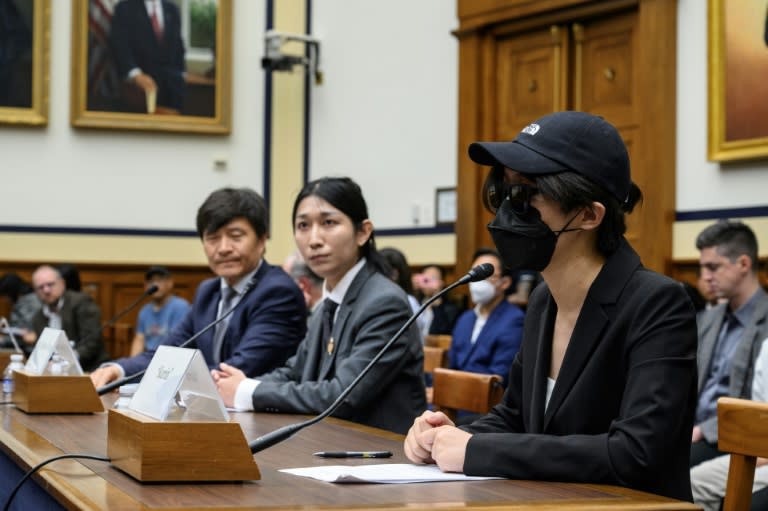US vows solidarity as Tiananmen Square leaders plea to keep memory alive

The United States vowed Tuesday to never stop promoting human rights in China 35 years after the bloody crackdown in Tiananmen Square, as the protest movement's exiled leaders pleaded for action to help keep the memory alive.
With China meticulously censoring any mention of the 1989 student uprising -- a blackout increasingly extended to once-open Hong Kong -- Tiananmen Square veterans commemorated the anniversary overseas, including in the United States and Taiwan.
US Secretary of State Antony Blinken -- who has visited Beijing twice since last year as he sought to ease tensions -- did not hold back from calling the events at Tiananmen Square a "massacre."
"As Beijing attempts to suppress the memory of June 4, the United States stands in solidarity with those who continue the struggle for human rights and individual freedom," Blinken said in a statement.
"The courage and sacrifice of the people who stood up in Tiananmen Square 35 years ago will not be forgotten," he said.
Blinken said the United States will "continue to speak out and work with the international community to promote accountability" over Beijing's "human rights abuses both within and outside its borders."
Tanks rolled into the vast central Beijing square on June 4, 1989, clearing out students who had been clamoring for democratic reforms.
The exact toll is unknown but hundreds died, with some estimates of more than 1,000. China's communist rulers have since sought to erase any public mention of the crackdown.
Wang Dan, one of the most visible Tiananmen protesters who was arrested but later allowed to go into exile in the United States, quoted Martin Luther King Jr as he said he still had "my own Chinese dream."
"I dream that one day the Chinese people will have freedom and dignity," he said outside the US Capitol, flanked by lawmakers including former speakers Nancy Pelosi and Kevin McCarthy.
"For 35 years, I have not forgotten this dream for a single day."
- Calls on tech companies -
Images from Tiananmen Square -- including the famous "Tank Man" who showed solitary defiance -- gripped the United States, but political leaders quickly moved to preserve relations with Beijing.
The United States opened its vast market to manufactured goods, helping fuel China's rise into the world's second largest economy.
"United States policymakers have deliberately put their heads in the sand," Zhou Fengsuo, a Tiananmen Square leader who now heads the Human Rights in China advocacy group, told a hearing of the Congressional-Executive Commission on China.
Zhou urged pressure on Western tech companies to stop work with China to enforce censorship that has included complying with bans on social media accounts.
"Companies must be held to account for their role in supporting the CCP's censorship, surveillance and harassment," he said of the Chinese Communist Party.
The veteran activist testified alongside "Karin," a Chinese student who appeared in the congressional hearing room disguised in an all-encompassing mask with dark sunglasses under a North Face baseball cap.
A student at Columbia University, she said she only learned about the Tiananmen Square crackdown when she was able to access Wikipedia.
She told the lawmakers that Beijing has put heavy pressure on students overseas, including by using classmates to report in critical voices among them and by detaining activist students when they return home.
She called on US lawmakers to compel student groups to disclose funding and to press universities to support students who feel they are targets of transnational repression.
Generations after the United States welcomed Tiananmen students, she said, "those first pioneers who lit the spark for us all should not be allowed to freeze in the wind and snow."
sct/bjt


